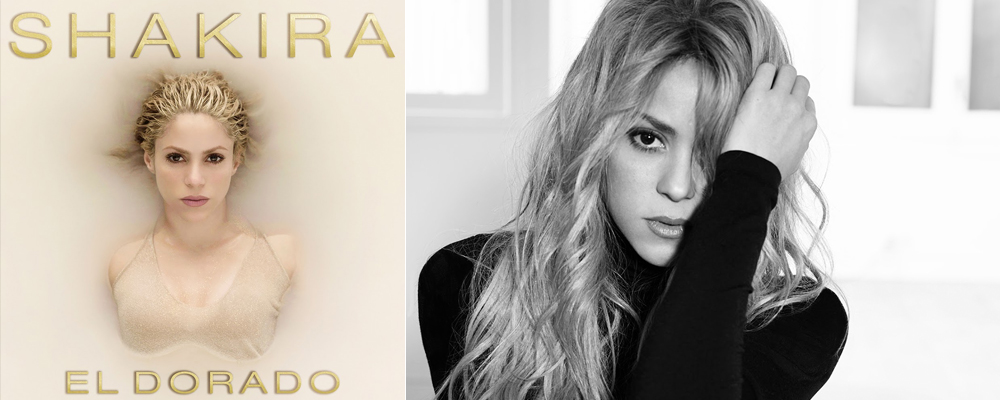Shakira Returns to Her Roots With ‘El Dorado’
Stephanie Hernandez
Shakira Isabel Mebarak Ripoll took Latin music to the next level in the United States in the late ’90s but didn’t truly conquer the world until 2001’s “Laundry Service” hit the airwaves. Selling more than three million copies in the U.S. alone, this curly-haired, hip-swaying singer made us all want to get up and dance. Her unique voice, use of Spanish language and worldly beats made for an unlikely but one-of-a-kind type of star. Legitimized across the globe due to her collaborations with the likes of pop icons Beyoncé and Wyclef Jean (“Hips Don’t Lie,” anyone?), it was Shakira’s original World Cup anthem “Waka Waka (The Time For Africa)” that solidified her place in the popular global music landscape. Switching her sound and approach up for her 2014 self-titled album, Shakira found herself working with more EDM and rock overtones. A clear stab at trying to regain some much-desired radio play, the project all but flopped and sent Shakira back to square one. Taking the subsequent few years to raise her two children, Shakira’s recent return to music was also a return to her roots. Pairing up with critically acclaimed songwriter Carlos Vives following the reception of a few of his demo tapes, these two Spanish speaking singers knew they were in for something good.
The result is her inspired return, “El Dorado”—a record sung mostly in her native tongue and filled to the brim with romantic songs backed by tropical beats and summer-ready rhythms. Named after the mythical golden city of the past, finding the organic, fiery inspiration needed for this album became Shakira’s own personal El Dorado. Here we find Shakira as we’ve come to picture her, totally and completely liberated. Tracks like “La Bicicleta” paint pictures of sunny days in Columbia—the real Columbia, joyful, carefree and full of life. The record features the already insanely popular single, “Chantaje,” which is Spanish for blackmail. In a sweltering duet with Latin pop icon Maluma, lines like “I’m a masochist / With my body, I’m an egotist” spun between the two singers are irresistible. Sultry and smooth, yet minimalist and modern, it’s a side to Shakira we haven’t seen before, yet one that feels so satisfyingly familiar. Here Shakira paints the female in the relationship as the dominant character, the one in control, careless and free. It makes for a much-appreciated narrative. Maluma makes a second appearance, this time on the slow-burning ballad, “Trap.” R&B is breathed into pop effortlessly as trap-style percussion keeps the pace moving. Classic Bachatas make an appearance on “Déjà vu” with the help of Prince Royce, while Nicky Jam’s assist on ”Perro Fiel” brings a reggaeton edge to Shakira’s poppy refrain. A record full of collaborations, “El Dorado” feels fresh and dynamic, with the kind of non-stop energy you would expect from a local summer block party.
“El Dorado” serves up the playfulness that was missing from the 2014’s “Shakira.” Each track sounds just as good on its own as it does in a group, and when brought together the sound is nothing short of jovial. This cheerful approach to songwriting feels so effortlessly genuine that it seems like a true reflection of Shakira’s Columbian roots. Though we lost her for a minute, it seems as though all Shakira had to do was look back to move forward. Her new path seems set.
“El Dorado” is available on Apple Music May 26.

